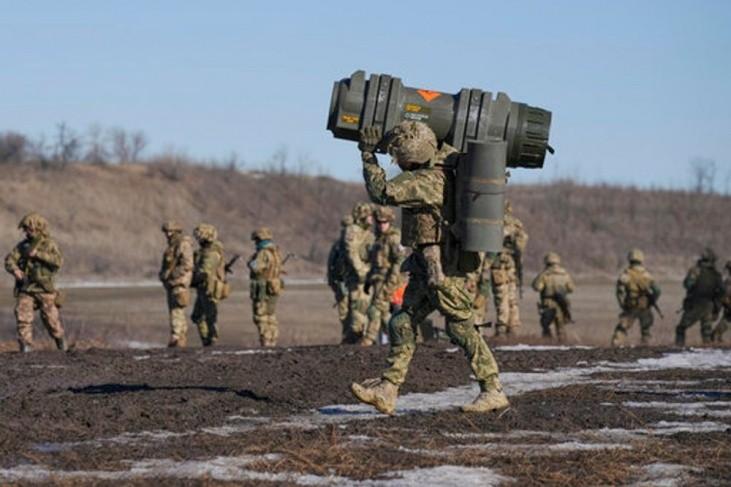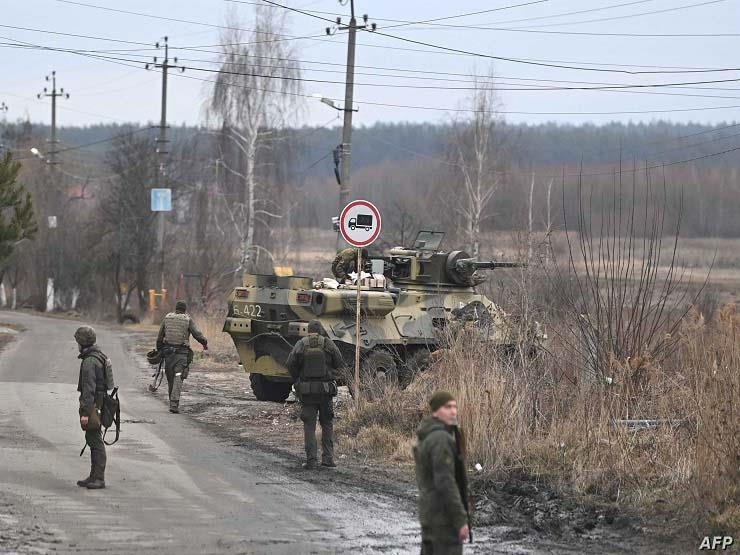Russia's invasion of Ukraine: What was a war crime?
An investigation has been launched into possible war crimes in Ukraine after Russia was accused of attacks on civilians.
The Prosecutor of the International Criminal Court (ICC) said that evidence of war crimes, crimes against humanity and genocide has been collected.
ICC begins investigation into Russian war crimes and the escape of one million Ukrainian refugees
The Russia that Putin reformulated according to his vision
Karim Khan: The new prosecutor of the International Criminal Court, what do we know about him?
Skip topics that may interest you and continue reading topics that may interest youTopics that may interest you at the end
This came after 39 countries called for an investigation in this regard. Russia denies targeting civilians.
What are war crimes, and what is Russia accused of ?
What is a war crime?
The Geneva Conventions are the body of laws defining a war crime, a broad and ancient body of laws referred to as the laws and customs of war, and in some special cases they represent the statutes of bodies such as the International Criminal Tribunals for the former Yugoslavia and Rwanda.
Why continue to hunt those involved in the Holocaust?
The Geneva Conventions are a series of international treaties that set international legal standards for humane treatment in war.
The first three treaties protect combatants and prisoners of war, while the fourth, adopted after World War II, protects civilians in war zones.
The true story of the Holocaust through the eyes of a survivor
UN adopts resolution to combat Holocaust denial
The Geneva Conventions of 1949 have been ratified by all UN member states, including Russia.
The definition of war crimes by the Fourth Geneva Convention includes:
The 1998 Rome Statute, another important international treaty relating to armed conflict, is also a useful guide to actions generally considered serious violations of international law.
The Rome Statute definition of war crimes includes:
The Rome Statute states that certain types of buildings, such as hospitals, or those designated for religious practices or education, cannot be deliberately targeted.
It also prohibits the use of certain types of weapons as well as poisonous gases.
What is the International Criminal Court and how are war crimes prosecutions?
The International Criminal Court, established in The Hague, Netherlands, in 1998 under the Rome Statute, is an independent institution that tries individuals accused of the most serious crimes of concern to the international community.
That court hears war crimes, genocide, crimes against humanity and the crime of aggression.
States can prosecute suspected criminals in their own courts, and the International Criminal Court can only exercise jurisdiction when states are unable or unwilling to do so, as it is a "court of last resort".
The court does not have its own police force and relies on the cooperation of states to apprehend suspects, and penalties imposed by the ICC can include prison sentences and fines.
The death of the "King of Assassins" who orchestrated in a hundred days massacres that killed hundreds of thousands
What is behind the decision to extradite Omar al-Bashir to the International Criminal Court?
Russia and Ukraine are not among the court's 123 member states, but Ukraine has accepted its jurisdiction, which means the ICC can investigate some of the alleged crimes.
Other notable countries that are not members of the court include the United States, China and India.
Were there war crimes trials before?
The killing of several million people, mostly Jews, by Nazi Germany during World War II, and the mistreatment of civilians and prisoners of war alike, prompted Allied forces to prosecute the people they believed were responsible.


Bosnia trembles with fear as the ghosts of the past appear
China "committed genocide" against the Uighurs
The Nuremberg Trials in 1945 and 1946 resulted in the death sentence of 10 Nazi leaders, and a similar process began in Tokyo in 1948 where the death sentence was applied by hanging to 7 Japanese leaders.
Those trials essentially set a precedent for subsequent trials.
In 2012, Congolese warlord Thomas Lubanga was the first person convicted by the International Criminal Court when he was convicted of recruiting and using children in his rebel army in 2002 and 2003. He was sentenced to 14 years in prison.
The International Criminal Tribunal for the Former Yugoslavia (ICTY) was a United Nations body that ran from 1993 to 2017, and was established to try crimes committed during the Yugoslav wars.
That court found Radovan Karadzic, the former Bosnian Serb leader, guilty in 2016 of war crimes, genocide and crimes against humanity for his role in the conflict.
Ratko Mladic, the military commander of the Bosnian Serb forces, was also convicted in 2017 of the same crimes.
Other special courts have also tried individuals for genocide and crimes against humanity in Rwanda and Cambodia. The International Criminal Tribunal for Rwanda was the first institution to recognize rape as a means to commit genocide.
What are the charges faced by Russia?
Cities, including Kyiv, Kharkiv and Kherson, have come under heavy attack in recent days.
Why did Russia enter Ukraine? And what does Putin want?
"Why are they bombing us?"
Ukrainian President Zelensky accused Russia of committing war crimes after Russian forces launched air strikes on Kharkiv, killing civilians.
Moscow is also accused of using cluster bombs in another attack on the city.
It is reported that cluster bombs are weapons that disperse smaller munitions when released, and have been banned by many countries under the 2008 Convention on Cluster Munitions, but neither Russia nor Ukraine has signed that agreement.
Skip the podcast and keep reading My Teen Podcast (Morahakaty)Teenage taboos, presented by Karima Kouh and prepared by Mais Baqy.
Episodes
podcast end
Human rights groups and Ukraine's ambassador to the United Nations also accused Russia of using vacuum bombs in an attack on the northeastern town of Okhtyrka. This type of bomb is controversial because it is more destructive than conventional explosives of similar size.
The vacuum bomb: what is it and does Russia use it in Ukraine?
Did Putin miscalculate with regard to Ukraine?
"My city is being bombed, but my mother in Russia does not believe me"
Who are the people in Putin's circle who are running the war in Ukraine?
Vacuum bombs, a heat weapon, can cause widespread destruction by igniting a cloud of vaporized fuel, and have a terrible effect on anyone caught in their detonation cycle.
A vacuum bomb, also called an atmospheric bomb, or a propellant air bomb, consists of a fuel container with two separate explosive charges.
This type can be launched as a missile or dropped as a bomb from aircraft. When it reaches its target, the first canister opens the container and disperses the fuel mixture widely in the form of a cloud.
And this cloud can penetrate any openings or defenses that are not completely closed. A second charge then explodes the cloud, creating a huge fireball and a massive blast wave, a vacuum that sucks all the surrounding oxygen. The weapon can destroy fortified buildings and equipment and kill or injure people.
These grenades are used for a variety of purposes, and come in a range of sizes - including weapons used by individual soldiers such as hand grenades and hand-held rocket launchers.
Putin sees Western sanctions as a declaration of war
Who are the top wealthy Russians close to Putin?
What sanctions are being imposed on Russia?
What do we know about the breakaway regions of Donetsk and Luhansk in Ukraine?
In 2007, Russia tested its largest thermobaric weapon, the so-called "father of all bombs". It produced an explosion equivalent to a conventional bomb weighing 44 tons - making it the largest non-nuclear explosive device in the world.
There are no international laws specifically prohibiting their use, but if a country uses them to target civilian populations in populated areas, schools or hospitals, they can be found guilty of a war crime under the Hague Conventions of 1899 and 1907.
The Kremlin has denied committing war crimes or using cluster and vacuum bombs, describing the accusations as "fake news."
"Strikes are carried out only on military targets and with the use of high-precision weapons," Russian Defense Minister Sergei Shoigu said.
Tell us your experiences
Are you a resident of Russia? The BBC would like to know your experiences in light of the sanctions imposed on Moscow. How has your daily life been affected?
If you would like to share your stories with us, use the form below to briefly tell us. We may contact you to publish it on our website.










